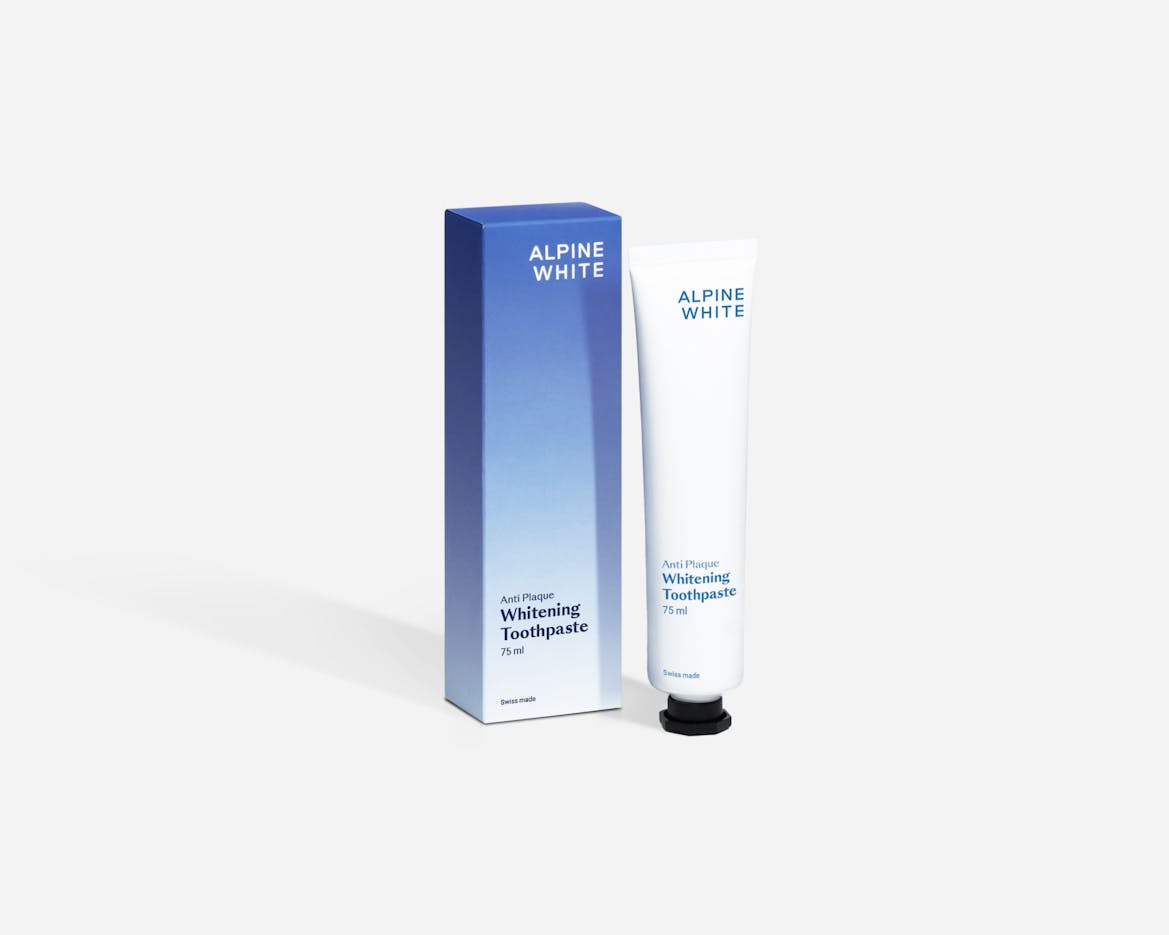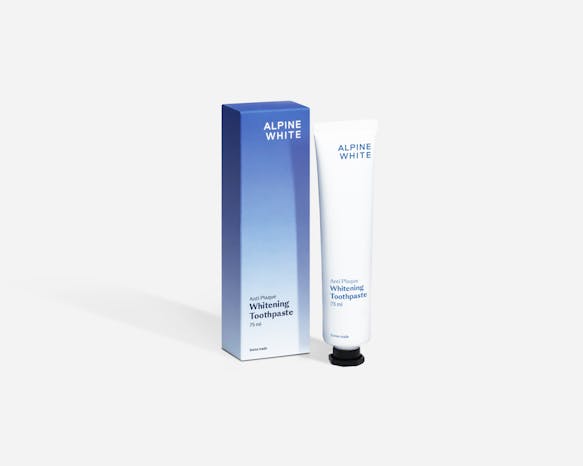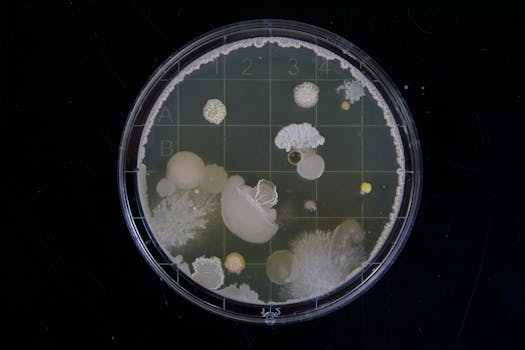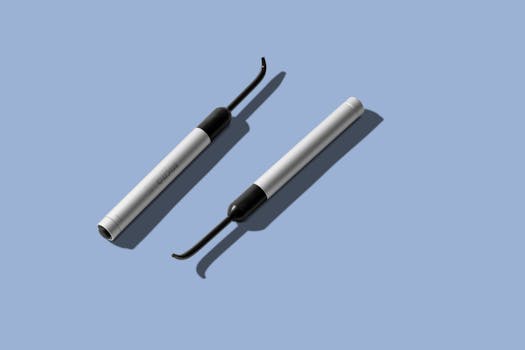Can caries be treated?
Tooth decay is a common problem that affects many people. But what exactly is tooth decay and how can it be treated effectively? In this blog post, you'll find out everything you need to know about tooth decay - from its development to treatment.



What is tooth decay?
Caries, often referred to as tooth decay or cavities, is one of the most common oral diseases. It occurs when the hard structures of the tooth, in particular the enamel and the underlying dentin, are destroyed by the acid production of bacteria. These bacteria are part of the plaque that continuously forms on the teeth. If caries is not treated in time, it can penetrate deeper into the tooth and reach the pulp, which can lead to toothache, infection and, in the worst case, tooth loss.
How does tooth decay develop?
The development of caries is a gradual process. It all starts with plaque on the tooth surface, which consists mainly of bacteria. These bacteria feed on the sugars you eat and drink and produce acids as a waste product. These acids attack the tooth enamel and lead to demineralisation, i.e. the loss of minerals from the enamel. This process can lead to the formation of small holes or cavities in the enamel, known as incipient caries or initial caries.
Early stage of caries
The early stage of caries, also known as initial caries, is often characterised by white spots on the teeth. These spots are an indicator of the demineralisation of the tooth enamel. At this stage, caries is often still reversible. Improved oral hygiene, the use of fluoride and regular check-ups at the dental practice or at our ALPINE WHITE Studio can stop the further development of caries. In some cases, inlays or other tooth-coloured restorations can be used to protect and strengthen the affected area.


Regular professional dental cleaning is essential for a healthy mouth and beautiful teeth. Our specialized staff identifies signs of cavities early and prevents them.
- Personalised treatment
- Gum check & caries control
- Painless cleaning with AIRFLOW
Advanced caries
As caries progresses, it penetrates deeper into the dentin and eventually into the pulp of the tooth. This stage of advanced decay can lead to severe toothache and often requires more extensive treatment options such as root canal treatments or even dentures. Caries removal at this stage is more complex and can significantly weaken the structure of the tooth.
Prevention of tooth decay
Preventing tooth decay is an essential part of dental health. One effective way to prevent tooth decay is to maintain good oral hygiene.
Toothpaste containing fluoride
Fluoride is a mineral that plays a key role in the health of your teeth. It helps to strengthen tooth enamel and makes it more resistant to the acids produced by caries bacteria. Regular use of fluoride toothpaste is a simple and effective way to protect your teeth from decay. Our ALPINE WHITE Whitening Toothpastes are ideal for this purpose.
How fluoride works
When you brush your teeth with fluoride toothpaste, a small amount of fluoride is deposited on your teeth. This fluoride interacts with the enamel and helps to replace lost minerals and remineralise the enamel. This process makes the enamel harder and more resistant to acid attacks.
Additional sources of fluoride
In addition to toothpaste, there are other sources of fluoride that can help prevent tooth decay. These include fluoride mouthwashes and professional fluoride treatments at the dentist. These additional sources of fluoride can be particularly useful for people who are at higher risk of tooth decay.
The role of nutrition
A balanced diet that is low in sugary foods and drinks also plays an important role in preventing tooth decay. Sugar is the main food source for the bacteria that cause tooth decay. By reducing your sugar intake, you can limit the growth of these bacteria and reduce the risk of tooth decay.


Not sure about the health of your mouth? Thanks to our innovative intra-oral camera, we can give you a detailed overview and offer you the best possible individual routine.
- We check your oral health and hygiene
- Checking your teeth for cavities
- Composition of an individual routine
The importance of regular dental care
When it comes to dental care, regular dental cleanings and daily interdental cleaning are essential practices for maintaining healthy teeth and gums. These routines play a crucial role in preventing tooth decay and other dental problems. Also make sure to clean the spaces between your teeth thoroughly.
Regular dental cleanings
Professional dental cleanings carried out in a dental practice or at ALPINE WHITE are much more thorough than daily brushing at home. These cleanings not only remove plaque and tartar that has accumulated on the tooth surface, but also clean the areas under the gum line. Such deposits are often the main cause of gum disease and, if left untreated, can lead to damage to the tooth structure and surrounding tissue. Regular removal of these deposits by a dental hygienist is therefore crucial to maintain the health of the affected tooth and the entire oral cavity.
The role of dental floss
Whilst brushing effectively cleans the front and back of the teeth, it often does not reach the narrow spaces between the teeth. This is where dental floss comes into play. Daily flossing is essential to remove food debris and plaque from these hard-to-reach areas. This helps to prevent the build-up of bacteria that can lead to tooth decay and gum disease. Flossing is also an important tool for preventing cavity infiltration as it helps to clean areas that are inaccessible to toothbrushes. You can also use dental floss to optimise dental care. Dental floss, or dental floss, is an indispensable tool in daily oral hygiene.
Prevention of dental problems
The combination of regular dental cleanings and daily flossing can significantly reduce the risk of tooth decay, gum disease and the need for more complex treatments such as root canal therapy. These practices help to protect tooth structure and promote overall oral health.


Your solution for stubborn plaque. Whitening Toothpaste Anti Plaque is designed to remove plaque and whiten teeth at the same time. For daily gentle dental and oral hygiene.
- Removes stubborn stains and tartar
- Based on our clinically tested Whitening formulation
- Remineralizes the enamel and relieves existing tooth sensitivity
- Antioxidants for healthy gums
- ormulated and produced in Switzerland
Caries treatment
The treatment of tooth decay depends on the stage of the disease. In the early stages, remineralising the teeth with fluoride toothpaste or mouthwash can help to strengthen the enamel and stop the decay.
If the caries has penetrated deeper into the tooth, a dental filling may be necessary. This involves cleaning the affected area and filling it with a material such as amalgam or a tooth-coloured filling.
In advanced cases, when the caries has reached the nerve of the tooth, root canal treatment may be necessary. This involves removing the infected pulp and sealing the tooth.
Caries treatment with ALPINE WHITE
At ALPINE WHITE, we offer two specialised treatments that focus on the prevention and repair of caries: caries repair and caries risk analysis.
These two treatments at ALPINE WHITE are designed to keep your teeth healthy and effectively prevent and treat tooth decay. With our approach, you can rely on professional care and innovative solutions that support your dental health.
Caries risk analysis
The caries risk analysis at ALPINE WHITE offers a detailed assessment of your individual caries risk. By using state-of-the-art analytical methods, we can detect the early signs of caries and offer you customised preventive solutions. This analysis is ideal for anyone who values their oral health and wants to protect it proactively. The method is quick, simple and non-invasive. We take a small amount of your saliva for analysis and analyse the sample in our Swiss laboratory using state-of-the-art technology. You receive the results and a personalised routine directly in our app, so you can easily keep your teeth caries-free.
Caries repair
Our caries repair treatment is a revolutionary method for regenerating the tooth structure. This gentle treatment enables the correction of initial caries, white spots and demineralisation without drilling, anaesthetic or discomfort. By remineralising with our special caries repair procedure, the enamel can be effectively repaired. This method is ideal for anyone who prefers a gentle caries treatment and wants to avoid the stress and discomfort of drilling or filling at the dentist. With a success rate of up to 93% for enamel regeneration, this treatment is an excellent choice for preserving natural tooth structure.
Closing words
Tooth decay is a common problem, but with the right dental care and treatment it can be treated effectively. Good oral hygiene, a balanced diet and regular visits to the dental hygienist are key to preventing and treating tooth decay.
Remember that the health of your teeth is an important part of your overall health. So take good care of your teeth to maintain a healthy smile!


